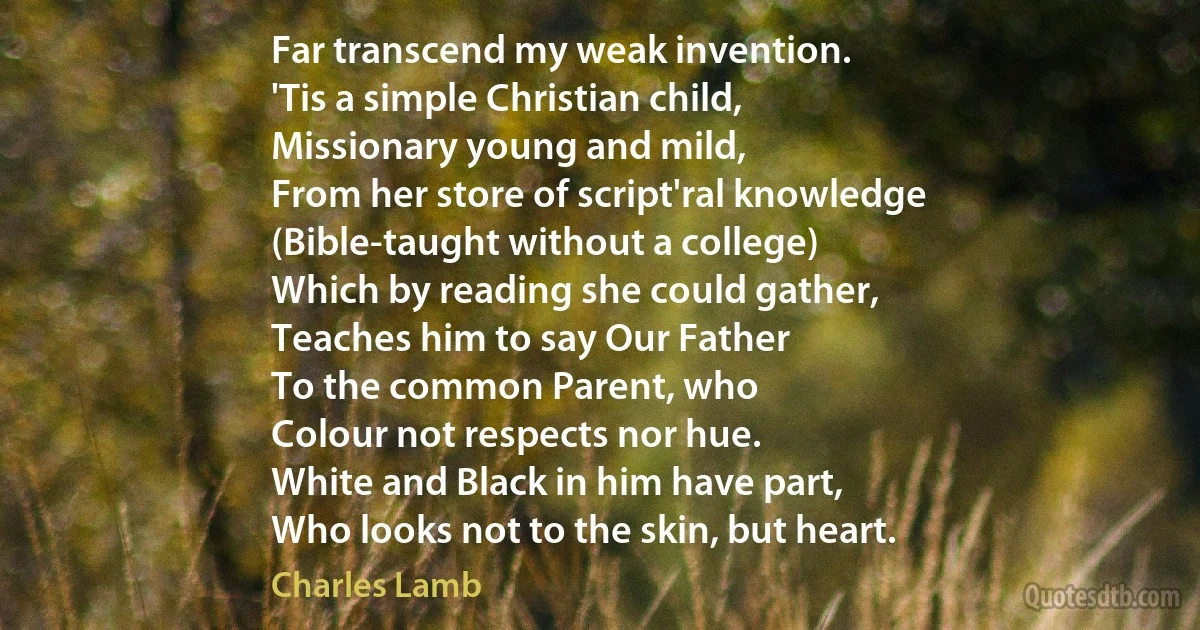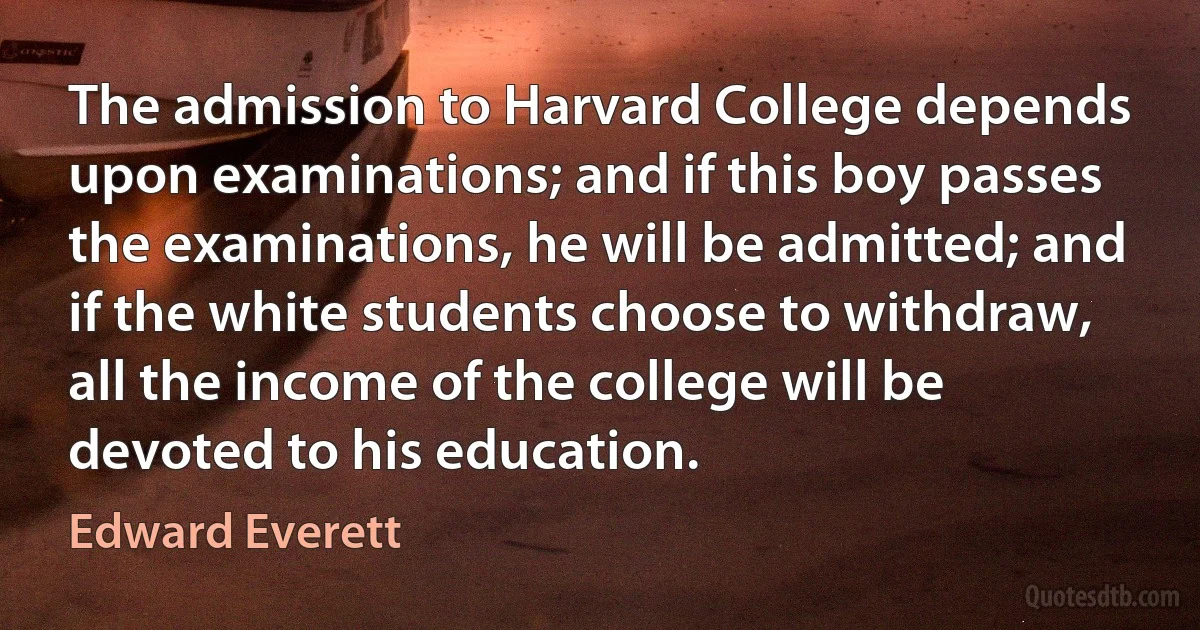College Quotes - page 27
One suggestion my wife and I have used in our personal finance courses we teach at college is simply writing down all expenditures and seeing where the money goes. That alone will cause heads of households to think twice about x, y or z expenditure, and to consider carefully whether they really need something or not.

Mark Skousen
I spent three days a week for 10 years educating myself in the public library, and it's better than college. People should educate themselves - you can get a complete education for no money. At the end of 10 years, I had read every book in the library and I'd written a thousand stories.

Ray Bradbury
In like manner the Reverend Dr. William A. Smith, President of the Randolph-Macon College in Virginia, in his work upon the Philosophy and Practice of Slavery, deliberately repudiates Mr. Jefferson's view of slavery as a 'grossly offensive error', and attributes the anti-slavery movement to him – which is as wise as to attribute the motion of the earth to Galileo. Judge Wayne, in his late charge at Savannah upon the law against the slave-trade, confirms Mr. Stephens's statement. And, as if to establish it by the most unexpected testimony, Mr. Edward Everett, in his late discourse upon Daniel Webster, said, 'In common with all, or nearly all, the statesmen of the last generation, he believed that free labor would ultimately prevail throughout the continent'.

George William Curtis
Theology schools are the wisdom teeth of academia: useless and sometimes injurious remnants of earlier times. If you want to teach comparative religion in college, you can do it in sociology departments, and if you want to teach the history of religion or of how scripture was confected, you can do it in history departments. There is no rationale for a modern secular university to teach theology, for it is the study of a nonexistent being and its supposed wants.

Jerry Coyne
I'm trained quite classically but quite freely by my mum, so even when I was little, I had this rather freewheeling approach. When I trained more seriously in my late teens at college, it was: here are the notes, here is what is expected of you. I didn't mind because you need technique, particularly on the piano, which requires a lot of stamina. And it was natural that once I had done that, I would want to go beyond classical music. How can you be yourself if all you do is reproduce someone else's notes?

Joanna MacGregor
I studied Japanese language and culture in college and graduate school, and afterward went to work in Tokyo, where I met a young man whose father was a famous businessman and whose mother was a geisha. He and I never discussed his parentage, which was an open secret, but it fascinated me.

Arthur Golden
I was a terrible student. Still, I managed to get into college, but my daydreaming threatened to sabotage me. I used behavior modification to break the cycle. I started by setting an arbitrary time limit on studying: for every 15 minutes of study, I'd allow myself an hour of daydreaming. I set the alarm.

Sandra Cisneros
It would be very convincing to say that there's no hope for movies - that audiences have been so corrupted by television and have become so jaded that all they want are noisy thrills and dumb jokes and images that move along in an undemanding way, so they can sit and react at the simplest motor level. And there's plenty of evidence, such as the success of Alien. This was a haunted-house-with-gorilla picture set in outer space. It reached out, grabbed you, and squeezed your stomach; it was more gripping than entertaining, but a lot of people didn't mind. They thought it was terrific, because at least they'd felt something: they'd been brutalized. It was like an entertainment contrived in Aldous Huxley's Brave New World by the Professor of Feelies in the College of Emotional Engineering.

Pauline Kael
After one of those terrible lovers' quarrels that leave one in a state of incomprehensible despair. I came out of the theater, tears streaming, and overheard the petulant voice of a college girl complaining to her boyfriend, "Well I don't see what was so special about that movie." I walked up the street, crying blindly, no longer certain whether my tears were for the tragedy on the screen, the hopelessness I felt for myself, or the alienation I felt from those who could not experience the radiance of Shoeshine. For if people cannot feel Shoeshine, what can they feel?... Later I learned that the man with whom I had quarreled had gone the same night and had also emerged in tears. Yet our tears for each other, and for Shoeshine did not bring us together. Life, as Shoeshine demonstrates, is too complex for facile endings.

Pauline Kael
Vito Acconci's extraordinary career-poetry, art, architecture: a sort of triathlon of the arts-began in the Bronx, where as an aspiring author of seven years he wrote stories about cowboys and athletes. At his Catholic college, he published sexy stuff about priests and nuns that got the school magazine banned for three issues running. He went on to write fiction in the Iowa Writers' Workshop. But when he came back to New York in the early '60s, something changed, and he began writing poems. Highly conceptual constructions, they did not tell stories, express feelings, or evoke a fictional world. They were not representational. Maybe you could call them presentational: this is a word, this is a sentence, you are reading.

Shelley Jackson



